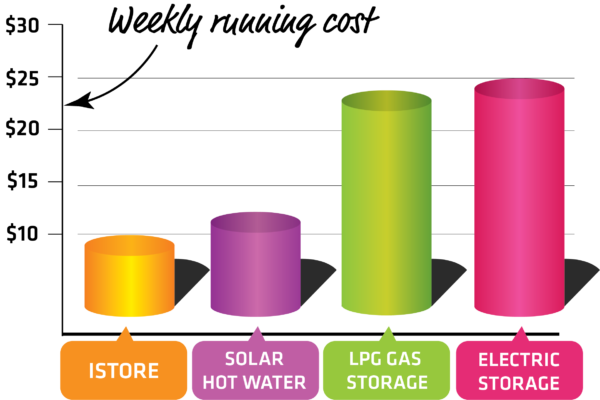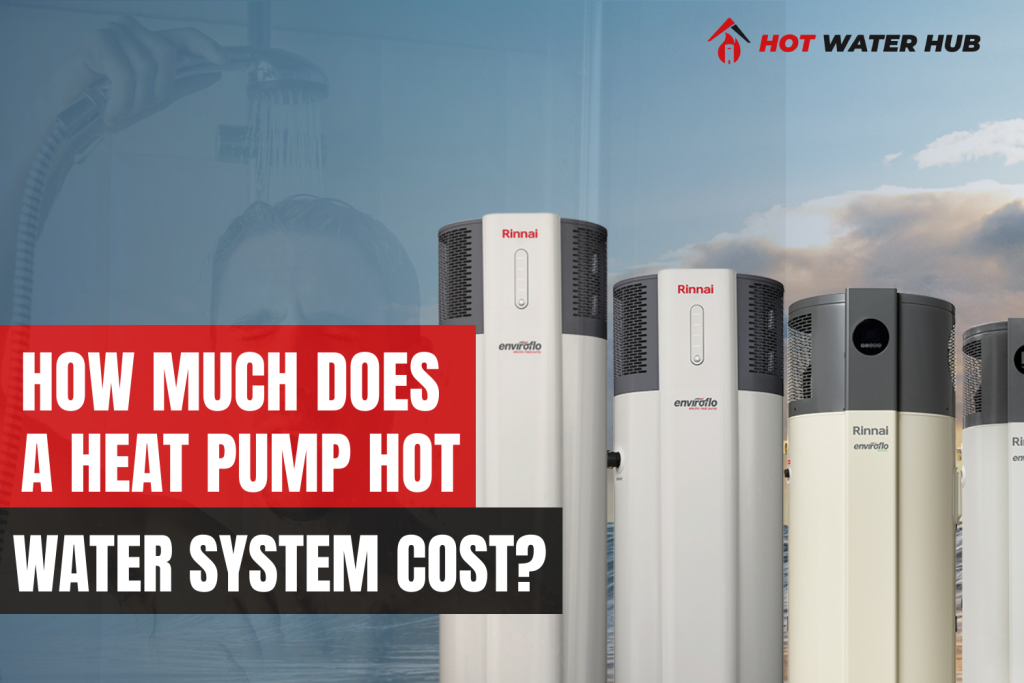iStore
The iStore 270L is the perfect solution for homes in need of a constant, reliable supply of steaming hot water, all powered by the sun’s rays.
Showing all 2 results
-
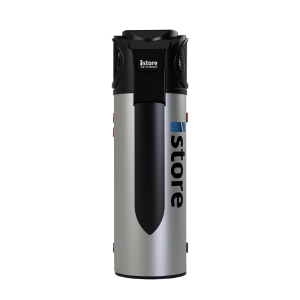 Details
DetailsiStore 270L Hot Water Heat Pump
Supply & Install$3199NSW -
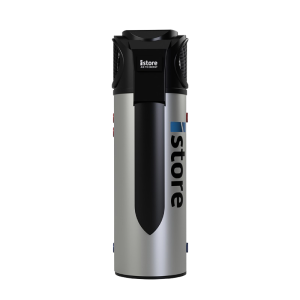 Details
DetailsiStore Hot Water Heat Pump 180L
Supply & Install$2799NSW
Enjoy major savings on running costs while switching to a more sustainable way to heat water.
The iStore cuts energy use by up to two-thirds compared to traditional electric or gas systems, reducing your home’s CO₂ emissions by as much as 2.9 tonnes each year.
Compare Water Heating Costs
Hot water heating makes up around 25% of the average Australian household’s electricity bill.
The iStore system significantly reduces energy use, cutting hot water heating consumption by up to two-thirds compared to traditional electric or gas storage systems. It also helps lower your carbon footprint by reducing CO₂ emissions by approximately 2.9 tonnes.
By switching to iStore, you could save up to $1,000* annually on your energy costs.
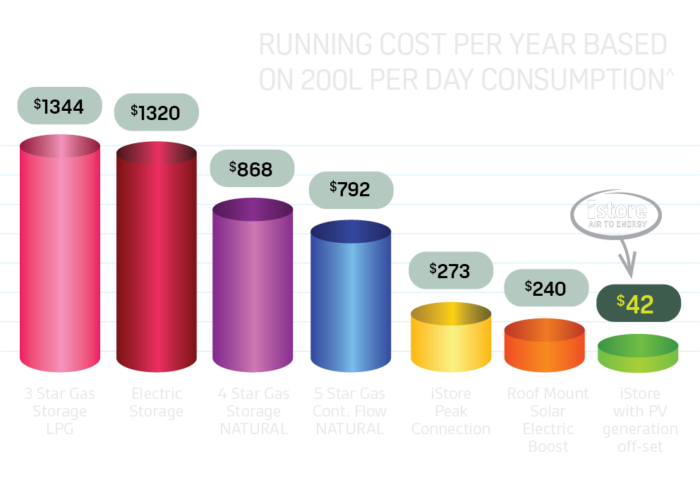 How much does an iStore heat pump cost?
How much does an iStore heat pump cost?
The iStore heat pump has a low price, under $3,000. It’s one of the best cheap hot water heat pumps you can buy.
Where are iStore heat pumps made?
The iStore heat pumps are designed right in Australia by the parent company, iStore. They have been making and selling these systems since they were first established in 2019.
How much does a heat pump cost in Australia?
The costs of different brands vary widely, so your choice will determine the price. The cheapest average is at $1,500 and the top tiers are at $5,000.
How much does it cost to fit a heat pump?
- $1,200 to $1,400 – for installation from scratch
What refrigerant does an iStore heat pump use?
An iStore heat pump utilises R134a refrigerant gas. R134a is an environmentally conscious choice with a low Global Warming Potential (GWP), which refers to its reduced impact on climate change.
The advantages of using this refrigerant are numerous. First, the eco-friendly nature of this refrigerant helps achieve Australia’s goal of decreasing greenhouse gas emissions, especially those from hot water heating, a major contributor.
Second, the R134a coolant excels at moving heat , helping the iStore heat pump use less energy. Finally, the R134a is widely used, hence easy to find, and costs less than other coolants. It is also very safe for people because it has no known toxins and is inflammable. This means it is safe for handling and causes no risk of fires or explosions, which is crucial for any heating system.
How efficient is an iStore heat pump?
The iStore heat pump functions in an amazing way. It can produce 4 times more heat energy than the power it uses. So, it takes just 1 kw of power to make four kw of heat energy. That huge efficiency can save a lot of money on heating bills. iStore says this efficiency can cut your energy use by 70% and help you save $1000 each year on utility bills!
Plus, since it uses less energy, this heat pump emits less greenhouse gas. Compared to regular water heaters, iStore’s pump carbon emissions are 2 tonnes lower per year, which is great for the planet!
